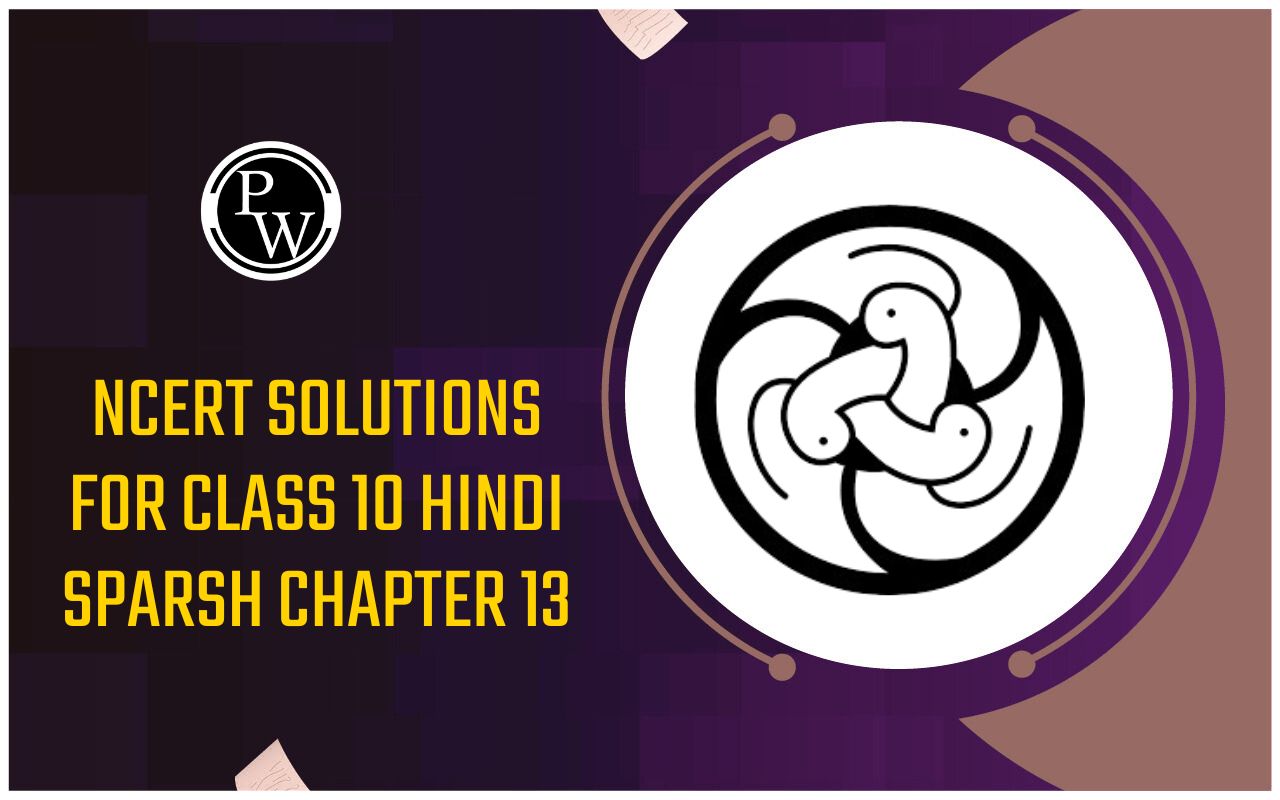
RD Sharma Solutions Class 10 Maths Chapter 1 Exercise 1.5: In Chapter 1 of RD Sharma Class 10 Maths textbook Exercise 1.5 focuses on the concepts of real numbers and their properties. This exercise includes a variety of problems that help students apply their understanding of rational and irrational numbers, along with their representation on the number line.
Each solution is created to enhance problem-solving skills, providing step-by-step explanations that make it easier for students to grasp the underlying mathematical principles. By working through this exercise, students can strengthen their foundation in real numbers which is important for tackling more advanced topics in mathematics.RD Sharma Solutions Class 10 Maths Chapter 1 Exercise 1.5 Overview
The solutions for RD Sharma's Class 10 Maths Chapter 1 Exercise 1.5 has been created by subject experts at Physics Wallah. These solutions provide clear and comprehensive explanations for each problem, ensuring that students can easily understand the concepts of real numbers and their properties. By breaking down each step, the experts help learners develop a strong foundation in the topic, which is important for mastering more advanced mathematical concepts. These solutions are an excellent resource for students seeking to improve their problem-solving skills and gain confidence in their mathematical abilities.RD Sharma Solutions Class 10 Maths Chapter 1 Exercise 1.5 PDF
The PDF link for RD Sharma Class 10 Maths Chapter 1 Exercise 1.5 is available below. By using this PDF learners can enhance their understanding of real numbers and their properties, facilitating better preparation for exams and assessments.RD Sharma Solutions Class 10 Maths Chapter 1 Exercise 1.5 PDF
RD Sharma Solutions Class 10 Maths Chapter 1 Real Numbers Exercise 1.5
Here is the RD Sharma Solutions Class 10 Maths Chapter 1 Real Numbers Exercise 1.5-1. Show that the following numbers are irrational.
(i) 1/√2
Solution:
Consider 1/√2 is a rational number Let us assume 1/√2 = r where r is a rational number On further calculation, we get 1/r = √2 Since r is a rational number, 1/r = √2 is also a rational number But we know that √2 is an irrational number So, our supposition is wrong. Hence, 1/√2 is an irrational number.(ii) 7√5
Solution:
Let’s assume, on the contrary, that 7√5 is a rational number. Then, there exist positive integers a and b such that 7√5 = a/b, where a and b are co-primes ⇒ √5 = a/7b ⇒ √5 is rational [∵ 7, a and b are integers ∴ a/7b is a rational number] This contradicts the fact that √5 is irrational. So, our assumption is incorrect. Hence, 7√5 is an irrational number.(iii) 6 + √2
Solution:
Let’s assume, on the contrary, that 6+√2 is a rational number. Then, there exist coprime positive integers a and b such that 6 + √2 = a/b ⇒ √2 = a/b – 6 ⇒ √2 = (a – 6b)/b ⇒ √2 is rational [∵ a and b are integers ∴ (a-6b)/b is a rational number] This contradicts the fact that √2 is irrational. So, our assumption is incorrect. Hence, 6 + √2 is an irrational number.(iv) 3 − √5
Solution:
Let’s assume, on the contrary, that 3-√5 is a rational number. Then, there exist coprime positive integers a and b such that 3-√5 = a/b ⇒ √5 = a/b + 3 ⇒ √5 = (a + 3b)/b ⇒ √5 is rational [∵ a and b are integers ∴ (a+3b)/b is a rational number] This contradicts the fact that √5 is irrational. So, our assumption is incorrect. Hence, 3-√5 is an irrational number.2. Prove that the following numbers are irrationals.
(i) 2/√7
Solution:
Let’s assume, on the contrary, that 2/√7 is a rational number. Then, there exist coprime positive integers a and b such that 2/√7 = a/b ⇒ √7 = 2b/a ⇒ √7 is rational [∵ 2, a and b are integers ∴ 2b/a is a rational number] This contradicts the fact that √7 is irrational. So, our assumption is incorrect. Hence, 2/√7 is an irrational number.(ii) 3/(2√5)
Solution:
Let’s assume, on the contrary, that 3/(2√5) is a rational number. Then, there exist coprime positive integers a and b such that 3/(2√5) = a/b ⇒ √5 = 3b/2a ⇒ √5 is rational [∵ 3, 2, a and b are integers ∴ 3b/2a is a rational number] This contradicts the fact that √5 is irrational. So, our assumption is incorrect. Hence, 3/(2√5) is an irrational number.(iii) 4 + √2
Solution:
Let’s assume, on the contrary, that 4 + √2 is a rational number. Then, there exist coprime positive integers a and b such that 4 + √2 = a/b ⇒ √2 = a/b – 4 ⇒ √2 = (a – 4b)/b ⇒ √2 is rational [∵ a and b are integers ∴ (a – 4b)/b is a rational number] This contradicts the fact that √2 is irrational. So, our assumption is incorrect. Hence, 4 + √2 is an irrational number.(iv) 5√2
Solution:
Let’s assume, on the contrary, that 5√2 is a rational number. Then, there exist positive integers a and b such that 5√2 = a/b, where a and b are co-primes ⇒ √2 = a/5b ⇒ √2 is rational [∵ a and b are integers ∴ a/5b is a rational number] This contradicts the fact that √2 is irrational. So, our assumption is incorrect. Hence, 5√2 is an irrational number.3. Show that 2 − √3 is an irrational number.
Solution:
Let’s assume, on the contrary, that 2 – √3 is a rational number. Then, there exist coprime positive integers a and b such that 2 – √3= a/b ⇒ √3 = 2 – a/b ⇒ √3 = (2b – a)/b ⇒ √3 is rational [∵ a and b are integers ∴ (2b – a)/b is a rational number] This contradicts the fact that √3 is irrational. So, our assumption is incorrect. Hence, 2 – √3 is an irrational number.4. Show that 3 + √2 is an irrational number .
Solution:
Let’s assume, on the contrary, that 3 + √2 is a rational number. Then, there exist coprime positive integers a and b such that 3 + √2= a/b ⇒ √2 = a/b – 3 ⇒ √2 = (a – 3b)/b ⇒ √2 is rational [∵ a and b are integers ∴ (a – 3b)/b is a rational number] This contradicts the fact that √2 is irrational. So, our assumption is incorrect. Hence, 3 + √2 is an irrational number.5. Prove that 4 − 5√2 is an irrational number.
Solution:
Let’s assume, on the contrary, that 4 – 5√2 is a rational number. Then, there exist coprime positive integers a and b such that 4 – 5√2 = a/b ⇒ 5√2 = 4 – a/b ⇒ √2 = (4b – a)/(5b) ⇒ √2 is rational [∵ 5, a and b are integers ∴ (4b – a)/5b is a rational number] This contradicts the fact that √2 is irrational. So, our assumption is incorrect. Hence, 4 – 5√2 is an irrational number.6. Show that 5 − 2√3 is an irrational number.
Solution:
Let’s assume, on the contrary, that 5 – 2√3 is a rational number. Then, there exist coprime positive integers a and b such that 5 – 2√3 = a/b ⇒ 2√3 = 5 – a/b ⇒ √3 = (5b – a)/(2b) ⇒ √3 is rational [∵ 2, a and b are integers ∴ (5b – a)/2b is a rational number] This contradicts the fact that √3 is irrational. So, our assumption is incorrect. Hence, 5 – 2√3 is an irrational number.7. Prove that 2√3 − 1 is an irrational number.
Solution:
Let’s assume, on the contrary, that 2√3 – 1 is a rational number. Then, there exist coprime positive integers a and b such that 2√3 – 1 = a/b ⇒ 2√3 = a/b + 1 ⇒ √3 = (a + b)/(2b) ⇒ √3 is rational [∵ 2, a and b are integers ∴ (a + b)/2b is a rational number] This contradicts the fact that √3 is irrational. So, our assumption is incorrect. Hence, 2√3 – 1 is an irrational number.8. Prove that 2 − 3√5 is an irrational number.
Solution:
Let’s assume, on the contrary, that 2 – 3√5 is a rational number. Then, there exist co-prime positive integers a and b such that 2 – 3√5 = a/b ⇒ 3√5 = 2 – a/b ⇒ √5 = (2b – a)/(3b) ⇒ √5 is rational [∵ 3, a and b are integers ∴ (2b – a)/3b is a rational number] This contradicts the fact that √5 is irrational. So, our assumption is incorrect. Hence, 2 – 3√5 is an irrational number.9. Prove that √5 + √3 is irrational.
Solution:
Let’s assume, on the contrary, that √5 + √3 is a rational number. Then, there exist coprime positive integers a and b such that √5 + √3 = a/b ⇒ √5 = (a/b) – √3 ⇒ (√5) 2 = ((a/b) – √3) 2 [Squaring on both sides] ⇒ 5 = (a 2 /b 2 ) + 3 – (2√3a/b) ⇒ (a 2 /b 2 ) – 2 = (2√3a/b) ⇒ (a/b) – (2b/a) = 2√3 ⇒ (a 2 – 2b 2 )/2ab = √3 ⇒ √3 is rational [∵ a and b are integers ∴ (a 2 – 2b 2 )/2ab is rational] This contradicts the fact that √3 is irrational. So, our assumption is incorrect. Hence, √5 + √3 is an irrational number.10. Prove that √2 + √3 is irrational.
Solution:
Let’s assume, on the contrary, that √2 + √3 is a rational number. Then, there exist coprime positive integers a and b such that √2 + √3 = a/b ⇒ √2 = (a/b) – √3 ⇒ (√2) 2 = ((a/b) – √3) 2 [Squaring on both sides] ⇒ 2 = (a 2 /b 2 ) + 3 – (2√3a/b) ⇒ (a 2 /b 2 ) + 1 = (2√3a/b) ⇒ (a/b) + (b/a) = 2√3 ⇒ (a 2 + b 2 )/2ab = √3 ⇒ √3 is rational [∵ a and b are integers ∴ (a 2 + 2b 2 )/2ab is rational] This contradicts the fact that √3 is irrational. So, our assumption is incorrect. Hence, √2 + √3 is an irrational number.11. Prove that for any prime positive integer p, √p is an irrational number.
Solution:
Consider √p as a rational number Assume √p = a/b where a and b are integers and b ≠ 0 By squaring on both sides p = a 2 /b 2 pb = a 2 /b p and b are integers pb= a 2 /b will also be an integer But we know that a 2 /b is a rational number, so our supposition is wrong Therefore, √p is an irrational number.12. If p and q are prime positive integers, prove that √p + √q is an irrational number.
Solution:
Let’s assume, on the contrary, that √p + √q is a rational number. Then, there exist coprime positive integers a and b such that √p + √q = a/b ⇒ √p = (a/b) – √q ⇒ (√p) 2 = ((a/b) – √q) 2 [Squaring on both sides] ⇒ p = (a 2 /b 2 ) + q – (2√q a/b) ⇒ (a 2 /b 2 ) – (p+q) = (2√q a/b) ⇒ (a/b) – ((p+q)b/a) = 2√q ⇒ (a 2 – b 2 (p+q))/2ab = √q ⇒ √q is rational [∵ a and b are integers ∴ (a 2 – b 2 (p+q))/2ab is rational] This contradicts the fact that √q is irrational. So, our assumption is incorrect. Hence, √p + √q is an irrational number.Benefits of Solving RD Sharma Solutions Class 10 Maths Chapter 1 Exercise 1.5
- Concept Clarity : The solutions provided for Exercise 1.5 help students grasp fundamental concepts of real numbers, including their properties and applications. This clarity is important for building a strong foundation in mathematics.
- Practice and Reinforcement : Regularly solving these exercises reinforces learning and aids retention. It provides students with ample practice to master the topic which is important for success in exams.
- Exam Preparation : The solutions are a valuable resource for exam preparation. Students can use them to familiarize themselves with the types of questions that may appear on tests and to practice under similar conditions.
- Self-Assessment : By attempting the exercises and then checking their answers against the solutions, students can assess their understanding of the material. This self-evaluation helps identify areas that need further attention or improvement.
- Confidence Building : Solving problems boosts students confidence in their mathematical abilities. With increased confidence, they are more likely to approach complex problems and challenges in future chapters.
RD Sharma Solutions Class 10 Maths Chapter 1 Exercise 1.5 FAQs
What are real numbers?
Are all integers real numbers?
Can real numbers be negative?
How are real numbers represented on the number line?










